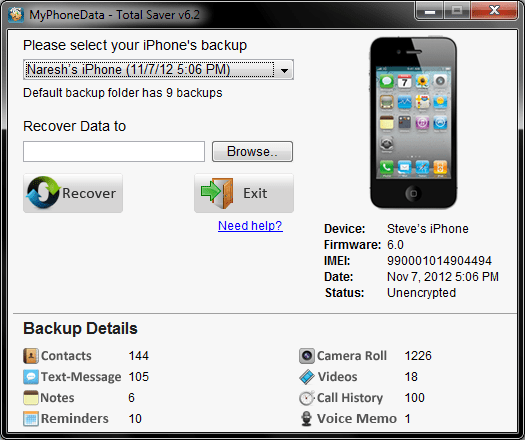

Also, it supports many camera models by default…
#Iphone photo renamer a how to
#Iphone photo renamer a mac

Next up: Google Drive is an excellent alternative to iCloud. Hopefully, the instructions above helped, and you won’t have to deal with any weird-looking file names from now onward. Renaming files and folders is important from an iCloud Drive storage management perspective, and is also quite useful before sharing items with others. On the floating box that shows up, type in a file name into the box at the top, and then press Enter. Place the cursor over the selected item, and you should see a tiny i-shaped Get Info icon - click it. Click the file or folder that you want to rename.

On, renaming is super-easy, but only if you are aware how to do it. To rename a file or folder, right-click the item, and then click Rename. That should take you to the location of iCloud Drive automatically. With iCloud for Windows installed and iCloud Drive enabled, click the iCloud icon on the taskbar, and then click Open iCloud Drive. Also, it throws fewer issues compared to the regular downloadable version. While both versions are mostly similar to each other, I would recommend getting the Microsoft Store version since it features superior syncing capabilities akin to Microsoft’s OneDrive cloud storage service. Otherwise, you have two ways to get it - using the downloadable installer from the Apple website or installing the app directly via the Microsoft Store. Windows lets you gain access to iCloud Drive via File Explorer, provided that you have iCloud for Windows installed. T ip: You can also change multiple file names simultaneously Rename Files and Folders on Windows Perform your changes, and then press Enter. Next, right-click the file or folder that you want to rename, and then click Rename. Open Finder, and then click iCloud Drive in the left navigation pane. On the Mac, renaming an iCloud Drive file or folder doesn’t require you to do anything out of the ordinary. With the file selected, simply tap the three-dot icon, and then tap Rename. If you use Column View on the Files app, then there’s also another way to rename files. Long-press an iCloud Drive file or folder via the Files app, and then tap Rename on the context menu. Renaming iCloud Drive files and folders on an iPad running iPadOS is the same as on the iPhone. Tap Done to finish, and your changes will save and sync over to the rest of your devices automatically. Then, tap Rename.Īll you should then do is insert a new name for the file or folder.

After a couple of seconds, you will receive haptic tactile feedback, followed by a context menu. Start by long-pressing the file or folder that you want to rename. But where is the option to rename files and folders? That is where Haptic Touch comes into play. Fast forward to iOS 13, and the Files app is more polished than ever before with a boatload of new functionalities, allowing you to manage both iCloud Drive and other cloud storage services easily. With the introduction of iOS 11, Apple got rid of the iCloud Drive app and instead integrated it into the Files app. So let’s check out how you can go about performing this otherwise simple task without hassle on any device. Furthermore, the iCloud Drive web app on also makes the process of renaming items quite unintuitive.


 0 kommentar(er)
0 kommentar(er)
